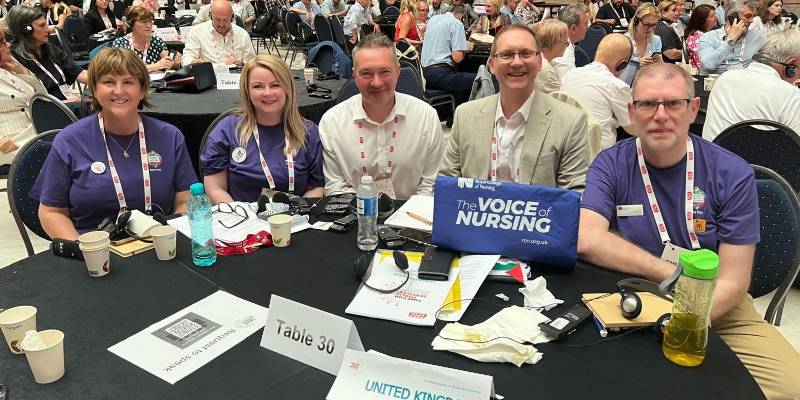
There were then a number of agenda items and fringe events over the three days debated by representatives from trade unions covering all sectors and a wide variety of countries which provided a rich spectrum of perspectives and opinions and led to fascinating discussions on the topics concerned.
Key items of interest were:
Workers in health care sectors across Europe have been surveyed to look at the impact of Covid-19 on their mental health. One interesting and significant factor was the public recognition expressed through the regular events and applause which then conflicted sharply with the subsequent continuation of poor pay and conditions and the public acceptance of this. The impact of this was thought to be more harmful than health care workers simply being unrecognised as they were pre-pandemic and was a possible cause of the continued decline in morale in combination with other known pressures.
There was a discussion on the future of long-term care with growing elderly populations in many countries also experiencing a lack of younger people taking up caring professions due to the pressures and poor pay. There was also reference to the exploitation of migrant workers to address these staffing shortages. Without appropriate pay and conditions Europe faces a care crisis as the situation continues to worsen.
Hans Kluge, Regional Director for Europe WHO, spoke about the projected shortage of 4.1 million health care staff by 2030 across Europe and how member states must act using the framework for action to improve retention, improve pay and conditions and support workers mental health. Cooperation between governments and stakeholders such as EPSU will be essential to avert this potential catastrophe.
We also heard from representatives from Ukraine and Palestine and there was debate around the best means of support for these conflicts. The incredible pressures these delegates were enduring were painfully obvious and it was incredibly moving to hear their accounts.
It was striking to hear how nursing unions across Europe are experiencing very similar pressures; even comparatively wealthy countries faced the rhetoric of austerity from their governments preventing fair pay and attacks on terms and conditions. Poorer countries also faced the additional strain of their workforce migrating, exacerbating their staffing shortages. It really struck home that the challenges faced by the RCN here in the UK are in fact European and global challenges and that we need to work together to overcome them.
The RCN was well represented at the congress with Denise Kelly, Jackie Davies and me all speaking at during the debates. Denise also sat on the panel discussion on the attacks on trade union rights relating to the minimum service bill in the UK. Overall it was a very intense and hot few days but hugely beneficial in ensuring the RCN has its place in the EPSU ensuring UK nurses have their voice heard.
Highlights from the congress can be seen here:
https://www.epsu.org/article/time-public-services-highlights-epsu-s-11th-congress


 Share on LinkedIn
Share on LinkedIn




